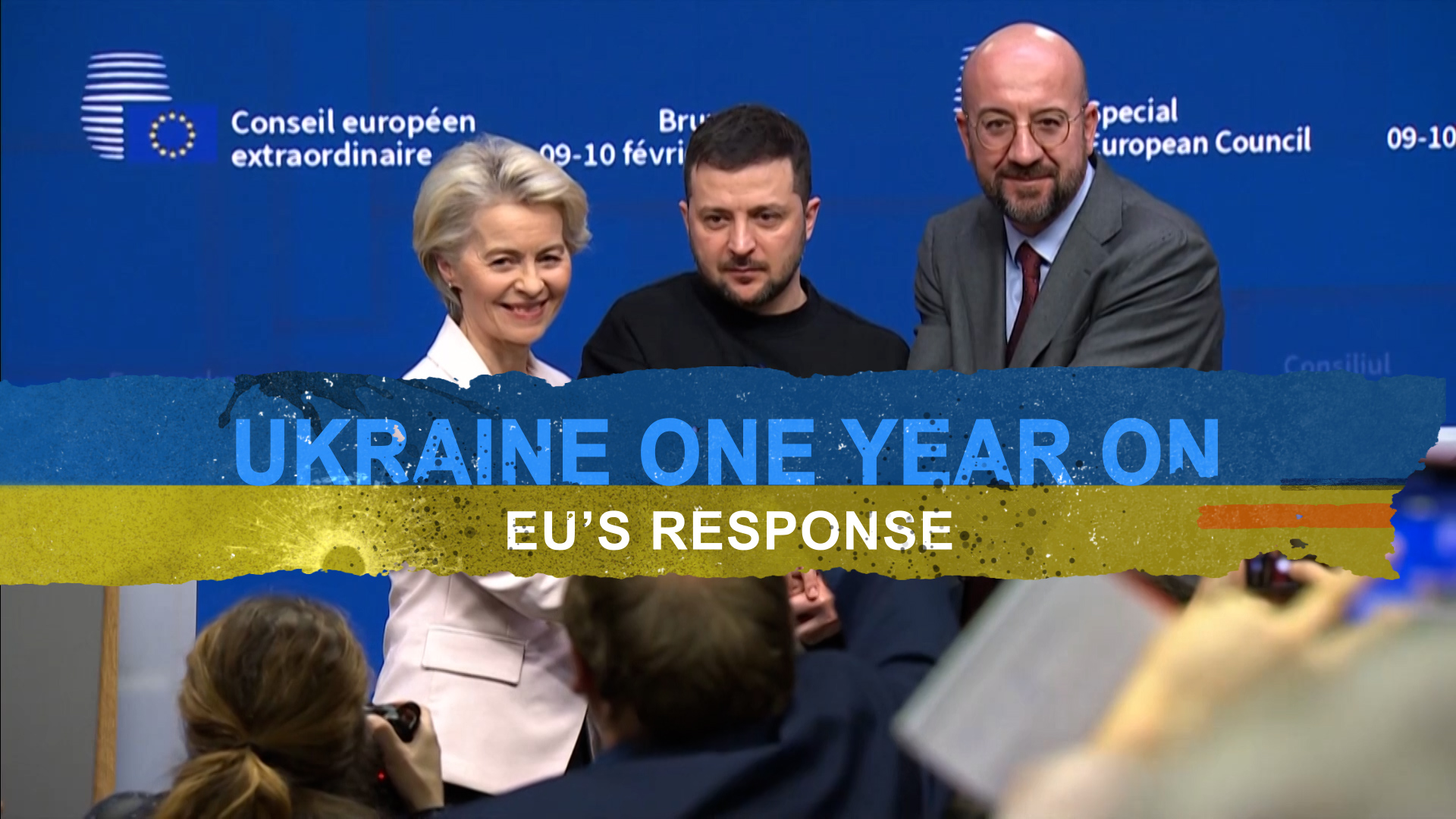02:50

The conflict in Ukraine has brought massive changes to Europe.
The economic impact of increased cost of gas and oil hurt consumers across the continent, which led the governments to offer huge support to businesses as well as individuals.
As countries chose to switch away from Russian fossil fuels to Liquefied Natural Gas (LNG), they also increased their investment in green energy.
This gave way to new diplomatic splits over the best way to support Ukraine and also how best to pursue peace.
READ MORE
Preparing for the worst on the Bakhmut frontline
Why was the quake so deadly and what happens next?
Recreating great art with vintage typewriters
Russian tanks rolled across the border into Ukraine's territory on February 24, 2022, in what Moscow calls a 'special military operation' – but Kyiv and its western allies call it 'a full-scale invasion'.
It was the moment that changed the course of peace in Europe. In a matter of days, the European Union had passed sanctions against Russia and sent millions of dollars of support to Ukraine.
However, the consequences of Russia's offensive sent shockwaves through the very foundations of the EU and forced the bloc to make some fundamental changes real quick.
Until the conflict began, the EU had never provided lethal weaponry to a non-member state, but a year in, the bloc has provided over $3 billion worth of military aid to Kyiv.
During the course of the conflict, Europe has also had to deal with another problem – its reliance on Russian fossil fuels. The EU got 40 percent of its gas and nearly 30 percent of its oil from Russia until February 2022.
And once it decided to switch from it, energy prices skyrocketed, reaching record highs last summer and hitting European households and businesses hard. The European Commission says the bloc has weaned itself off of Russian fossil fuels and prices have plummeted.
"We have shown that we can face off Russian blackmail when it comes to energy," said Dana Spinant, Deputy Chief Spokesperson of the European Commission. "Remember where we were one year ago in relation to our dependence on Russian fossil fuels.
"We have also managed not only to compensate and ensure our security of supply but to help bring prices down."

European Union flags flutter outside the EU Commission headquarters, in Brussels, Belgium. /Yves Herman/Reuters
European Union flags flutter outside the EU Commission headquarters, in Brussels, Belgium. /Yves Herman/Reuters
The EU also looked to its eastern borders and started the process of adding new members to the union.
"I want the people of the Western Balkans, of Ukraine, Moldova and Georgia to know: You are part of our family, your future is in our Union, and our Union is not complete without you!" said Ursula Von der Leyen, President of the European Commission.
Despite political will from the EU, the road to accession will be a challenging one, with some member states urging Brussels to tone down the promises of membership, as the process could take a decade.
The EU also activated emergency mechanisms to allow refugees from Ukraine to live and work in member states – an estimated eight million Ukrainians have since fled the horrors of the conflict to seek refuge elsehere in Europe.
Russia's attack on Ukraine has been a stress test for the continent, the likes of which the EU has never seen. There have been disagreements, debates and even tensions within the bloc.
Nevertheless officials in Brussels are clear about two things – they say their support of Ukraine is unwavering and the EU is now stronger, and more united than ever.
Subscribe to Storyboard: A weekly newsletter bringing you the best of CGTN every Friday